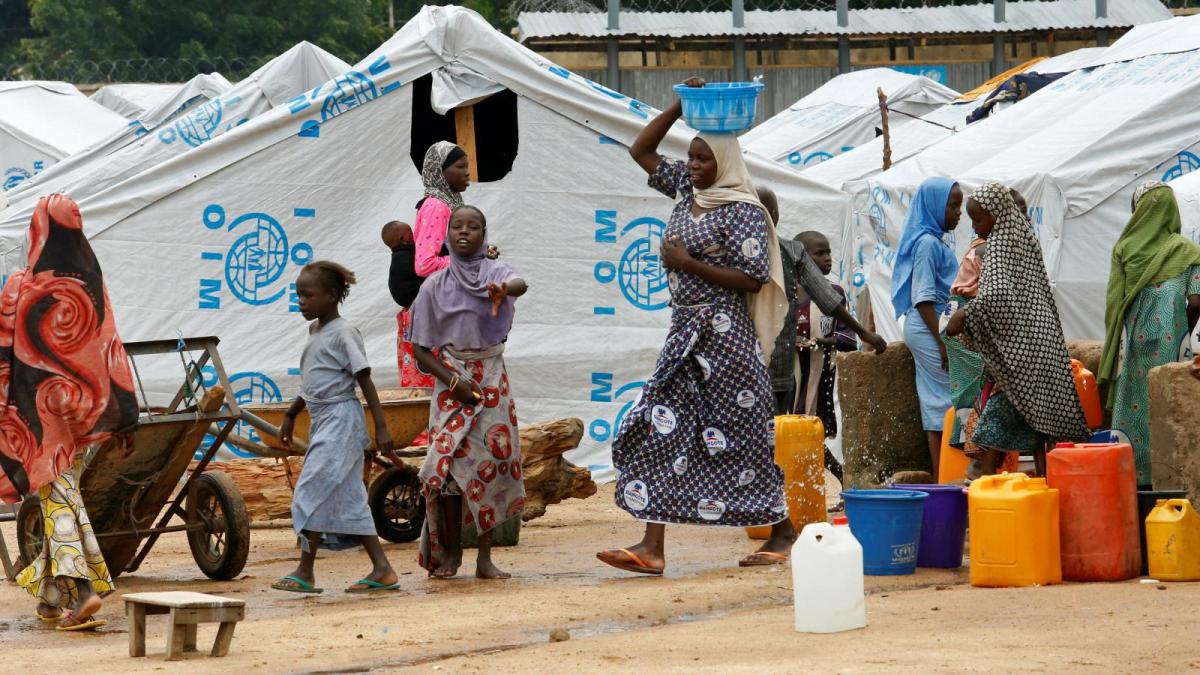There are no products in your shopping cart.
| 0 Items | £0.00 |


UNITED Nations (UN) officials have warned that the deteriorating security situation in northeast Nigeria since the beginning of the year combined with the impact of Covid-19 could lead to widespread starvation and hunger across the region.
Since 2009, Boko Haram has been waging war against the Nigerian state, seeking to create a pure Islamic theocracy. At one stage, the terrorist sect controlled 13 local government areas in Borno State and although the Nigerian Army has since recovered most of this territory, Boko Haram is still functional and has stepped up its activities of late.
Edward Kallon, the UN humanitarian coordinator in Nigeria, said the number of people needing humanitarian assistance in the country is the highest ever recorded in five years. According to Mr Kallon, over 10.6m people, out of a total of the 13m residents of Borno, Yobe and Adamawa states will need some form of humanitarian assistance in 2020.
Mr Kallon said: “The Covid-19 pandemic is affecting us all and its devastating effects will distress Nigeria’s most fragile region. Unless we take immediate action, we should prepare for a spike in conflict, hunger and destitution in north-east Nigeria.”
Speaking at an online high level briefing along with Nigeria's minister of humanitarian affairs, disaster management and social development, Hajiya Sadiya Umar Farouq and Borno State governor, Babagana Zulum, Mr Kallon said there is a close to a 50% increase in people in need since last year, mainly from increasing violence and insecurity further compounded by the Covid-19 pandemic. He stressed that the Covid-19 pandemic exacerbates the dire humanitarian situation and risks wreaking havoc on the most vulnerable population.
Paul Howe, the representative and country director of the World Food Programme, added: “We are concerned about conflict-affected communities who already face severe hunger and are vulnerable to the socio-economic fallout from the pandemic.”
According to the UN, although humanitarian organisations are providing food assistance to over 2.5m people, the food security situation has gradually worsened over the past three years. According to Mr Kallon, in an area where famine was averted only a few years ago and where millions are still struggling to find their next meal, the steep rise in prices and movement restrictions due to the Covid-19 pandemic are an insufferable shock and up to 4.3m people could now be facing hunger.
Ambassador Ahmed Shehu, the chairman of the North East Civil Society Forum, added: “Accessing the most vulnerable communities has become more challenging even for us as national organisations. Many of our colleagues have lost their lives in the service to humanity, so we are urging the international community to support the north-east."
Charles Usie, the country director of Christian Aid, representing the international non-governmental organisations, said: “Needs are increasing and our work has become ever more challenging. Since late 2019, there are almost no roads in Borno and Yobe states that humanitarians can travel on and with the upsurge in violent attacks by non-state armed groups, humanitarian workers and the aid they deliver are increasingly at risk.”
According to the UN, over the past year, 15 aid workers were killed in wanton violence by non-state armed groups, greatly affecting the ability of international and Nigerian organisations and the government to provide life-saving assistance. However, Mr Kallon said that despite the challenges, the humanitarian community remains committed to supporting the people of Nigeria who are desperately in need of assistance and they have provided assistance to over 2.6m people since the beginning of this year.